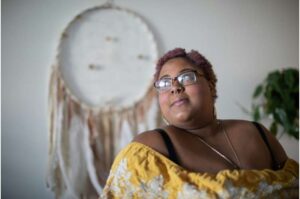Mr. President,
Excellencies,
Distinguished delegates,
It is unacceptable, that in a world of such abundance, so many people have so little.
Since 2020, around 5 billion people globally have become poorer.
1.6 billion people lack adequate housing and basic services – with projections that this could rise to 3 billion by 2030.
This is a huge human rights failure and a crisis of solidarity.
It is also intolerable, that in a world of such extravagant wealth, so many countries are drowning in global public debt.
3.3 billion people live in countries that spend more on interest payments than on either education or health.
These are staggering numbers – and we cannot allow ourselves to become accustomed to them.
As I said on Monday, we cannot become accustomed to a new normal of this kind.
In fact, the SDGs were meant to address these issues head on.
One year ago, I presented this Council with my Office’s vision report on economic, social and cultural rights.
I remember that session as one marked by enthusiasm and determination.
Unfortunately, despite the commitments to deliver real change, it has not translated into action, and the enjoyment of these critical rights has deteriorated.
Today’s panel discussion is an opportunity to re-commit – urgently, concretely and operationally – to the implementation and fulfilment of economic, social and cultural rights.
Education, healthcare, decent work, social security, freedom from hunger, and the enjoyment of science and culture are the essential building blocks of just, equal, and peaceful societies.
Like the roots of a tree, economic, social and cultural rights – indeed, all human rights – feed our communities, keeping them nourished, connected and stable.
Their realization strengthens the fabric of our societies.
But their denial feeds discrimination, deepens inequality, increases vulnerability and fuels conflict.
Investment in human rights, including economic, social and cultural rights, is crucial as a matter of law – and also as the basis for good governance and planning.
And yet, the alarming surge in global public debt – compounded by a grossly unequal international financial architecture – is diverting essential resources away from the people and places that truly need them.
Furthermore, the liquidity crisis has hindered my Office’s ability to expand its capacity in the way it was envisaged this time last year.
Despite these challenges, we are striving to improve the implementation of economic, social and cultural rights globally.
My Office has engaged with numerous Governments and conducted legal and policy analysis to anchor national efforts in international standards – for example, through the review of social security policy in Cambodia. Through new mental health guidance launched by my Office and WHO, we will also help States to align their laws and policies with human rights norms.
In Honduras, another example, we have worked to strengthen accountability for violations of economic, social and cultural rights and for corruption, by building capacity of national mechanisms and supporting judicial proceedings.
And we continue to empower rights-holders – including by collaborating for example with domestic workers in Ethiopia, and with civil society in the Syrian Arab Republic.
We are taking concrete steps – including on training – to expand our focus on cultural rights. This work is vital, considering the multidimensional nature of inequalities and the role culture plays in promoting sustainable development, social cohesion and preventing conflict.
To provide more tailored technical assistance, this year, my Office will undertake regional consultations on economic, social and cultural rights, starting with Governments and other stakeholders in Latin America, Africa and Europe.
The goal is to hear your challenges, priorities and needs – so that we can support you effectively.
But we want to expand these efforts, including by working with frontline actors, like social workers and local government officials.
And by establishing a Knowledge Hub for Economic, Social and Cultural Rights.
These efforts – and others like them – highlight the importance of context-specific support at the country and regional levels, and I take this opportunity to call on States to engage with OHCHR fields presences.
Mr. President,
As part of the Human Rights 75 Initiative, we heard many commitments from governments.
States made time-bound pledges to eradicate extreme poverty and to address inequalities.
To ensure universal health care, education and social protection.
To strive for access to water and sanitation, and adequate housing – for all.
Commitments are important – but States must follow them through, and my Office is here to provide support.
There is no alternative. We cannot stand idly by as inequality deepens, as global hunger grows, as hardship increases.
The outcome cannot be health for some. Wealth for some. Jobs for some. Rights for some.
Instead, we must build inclusive economies that create greater fiscal space, reform tax systems and promote an equitable distribution of resources.
Economies that prioritise people instead of profit at all costs and only for a few.
Realizing economic, social and cultural rights requires a range of approaches – including legislative, policy, and institutional ones.
International assistance and cooperation, especially economic and technical, are also vital.
And it is important to be mindful of the indivisibility of all human rights. This means that economic, social and cultural rights will not be possible without the full realization of civil and political rights.
It requires commitment, proper investment, and above all concrete action, including combatting corruption to safeguard vital resources.
So let today mark a renewed momentum for economic, social and cultural rights – and an important step in our collective efforts to eradicate inequality.




